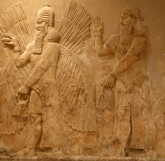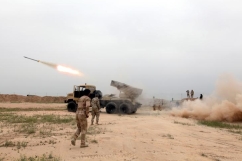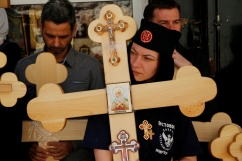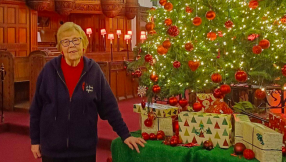On the two-year anniversary of the ISIS invasion of Mosul, Syriac patriarchs released a joint statement which lamented the "ethno-religious genocide" of their people, and called for the liberation of Mosul and the Nineveh Plain.
Two years after ISIS took control of Mosul and the Nineveh Plain on June 10 and the eve of August 7, 2014 respectively, Syriac Catholic Patriarch Joseph III Younan and Patriarch Ignatius Aphrem II of the Syrian Orthodox Church of Antioch said: "the wound of forced emigration is still bleeding".
ISIS militants forced thousands to flee their homes and "stole the properties and possessions of our people, spreading the darkness of death, destruction and moral degradation," the statement, released on Friday, said.
Around 500,000 people were forced to flee Mosul, some to the Kurdistan region of Iraq and neighbouring Lebanon, Jordan and Turkey, others further afield.
While the letter acknowledges and welcomes that some countries have recognised this as a genocide against Christians and other ethnic minorities, the patriarchs challenged the "absence of serious actions from the part of the international community and the Iraqi government to step up the liberation of Mosul and the villages of the Nineveh Plain from the terrorist groups".
The statement read: "The decision making countries and the international community remain silent and inactive towards the ethnic cleansing of a historical people who founded the civilisations of the area."
The patriarchs shared their personal experience of visiting the regions controlled by ISIS.
"As spiritual fathers of this people, our hearts were pierced with pain and our eyes were filled with tears every time we visited, together and separately, our displaced children who settled in the cities and towns of the Kurdistan Region in Iraq," the letter read.
"We observed their suffering and the lack of the most basic elements needed for a dignified life, namely housing, work, health care or education for the children."
The patriarchs also shared a message to those displaced by the invasion, calling them to be encouraged and "remain the shining lamp in the darkness of this tribulation, for your return to your homes will be soon. We trust the promise of the Lord that He will remain in the midst of His Church and She will never fall".

















